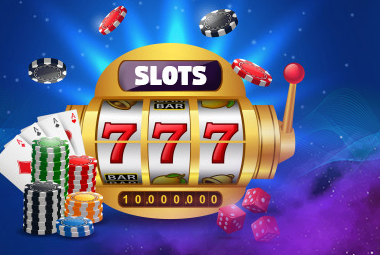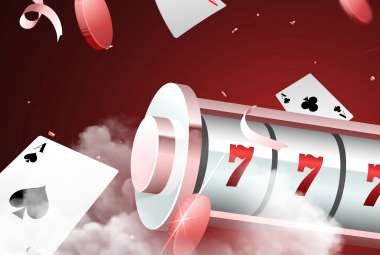Introduction
For the purely mathematically inclined, there is not much of a reason to practice any game. They know the odds, the permutations, possibilities, and probabilities. Yet, advantage players do indeed "practice" if we look more closely at the word and its origins.
Just as a doctor or a lawyer practices medicine or law, and as consultants, architects, and engineers are employed at practices, APs engage in or pursue a particular skill or art - and sometimes make an occupation or profession of it.
When they try on a new strategy or advantage play they will be expecting the results to fall within a certain range. They might look for tweaks or improvements, or they may simply confirm in practice what they already expect to occur.
There are tomes of information out there and a veritable collective brain trust of secrets and not-so-secret methods for plying one's trade in the craft of advantage play.
For all of the casino games out there, one seems to be mostly overlooked by true experts when it comes to strategy and practice. That game is slots.
Why is that?
Obviously, it is a game of pure luck and chance. It doesn't take any special skill to play slots. With the exception of some bonus rounds, you can't affect the outcome of the game with any decisions you make.
It seems like a slam dunk, right? Nothing to see here, move along to the tables where you actually have some control over the outcomes on some games.

That conclusion may be incorrect.
I am not an expert, true or otherwise, but I have practiced slots play for a long time... long enough to know that I am indeed the master of my fate on slot machines to some degree.
Please drop the pitchforks, there is no heresy here, simply a different frame of reference.
It can be argued well that choosing games with high theoretical return to player percentages (RTPs) is the only choice a slot player can make to improve their chances.
True. But it's simply not a very important consideration unless you look at your entire life as one gambling session.
Here is why. After 1,000,000 spins on a game with volatility (a standard deviation) of 5.6 and a confidence interval of 95%, you are only going to be within 1.09760% of the mean - higher or lower - in 19 out of 20 simulations or sessions.
That RTP swings 4.90862% either way after only 50,000 spins.
Why would I base my expectations on the RTP if the results can swing nearly 10% after 50,000 spins or 8 hours of steady play?
The easy answer is: "Don't. Just don't play slots!"
But I do play slots. Why? It's not that I'm too thick to understand that blackjack, for instance, has a much smaller swing (standard deviation of about 1.14%) and a potential RTP of about 99.72%. It's not that I'm too lazy to master a strategy and maybe even add some AP edge to it.
I play slots because I'm a thrill-seeker. Slots fit my personality. I love the big wins - and of course, I pay for those moments in advance - after all, it's a game of dumb luck, right?
There is something else, in addition to choosing high RTP games that is under the slots player's control. It's another choice. Game volatility.
Choosing high-risk games does not improve your odds of winning. In fact, it almost certainly guarantees that you will lose more often, lose quicker, and most likely lose more.
It's also about the only way you'll ever stand a chance of winning big in your lifetime.
"...and most likely lose more."
It may be necessary to reframe your thinking for a moment. We'll look at a lifetime of gambling as a single session, a concept not unfamiliar to many, but novel to some.
In that session you may play safe bets, constantly improving your skills through practice and the application of knowledge. In the end, you may end up a winner. Your lifetime deposits may be less than your lifetime cashouts.
Of course, no matter the final score it is not likely to be one of your biggest regrets or an accomplishment you'll reflect on for long if it comes to mind at all. A life well-lived is a life well lived after all.
The high-risk player is likely to lose more for any of several reasons.
- They may be all over the place in the sort of games they have played before coming to the realization that there is a way to improve their chances of "quitting a winner"
- Some of those games may have had very low RTP
- They may be playing at a level of risk that is not commensurate with their lifetime bankroll
- They may never hit that big win
Quitting as a Winner
Most of us do not keep spreadsheets of all our wins and losses over time. Is it fair to simply assume that as of this moment you are not a net winner? Probably so, it's the nature of the game after all.
For those who are bucks up, great! Stay that way, ignore this information, close out your career with honors today or many years from now, and congratulations!
I'm currently a net loser. I just know it in my guts. I stopped documenting my play years ago when slots bonuses went from bad to worse, I just wasn't that passionate about it. Now, bonuses don't matter much to me on any given deposit session - I take them or leave them, save one term: MAX CASHOUTS. They defeat my purpose. I'm also bonus banned at most of my favorite haunts anyway.
My goal every time I sit down to play is to shake the rafters and bring down the chandeliers. I can't do that playing baccarat or blackjack. I can't do it with a whale's bankroll.
However, I can open a highly volatile slot and make it even more explosive than it was intended to be by selecting fewer lines and increasing my stake per line.
If the game is fair, and we are only fighting the odds, each spin has the same RTP as the last or the next, right?
What if that spin was loaded for bear and I hit the right combination on a staked line or lines?
If my gambling session is life-long it doesn't matter if I go bust in 10 spins today, tomorrow, or the next day - like playing the lottery, you can't win if you don't buy a ticket. Even if playing the lottery is the absolute worst bet out there and only has an RTP of 42%, you simply cannot win big or win at all if you do not play.
If a slot has an RTP of 96% that number is written in stone whether I play 20 lines at a dime each or 5 lines at forty cents each. If I'm feeling real froggy, after a few good wins or just for the heck of it, 20 lines at twenty-five cents each costs the same as 5 lines at a dollar each.

Will I quit as a winner?
Probably not. While I book many phenomenal wins, it costs a lot to play the way I do. Nothing shy of a million-dollar progressive win would be enough to pay me off and make me quit. I live for the thrill, and I'm willing to pay for those moments ahead of time, or even after the fact if I never hit another bonanza.
Is risky play for everybody?
Oh heck no! You would have to have a certain personality to play high-risk slots seriously. It takes a certain discipline and level of responsibility too.
You might ask yourself a few questions to see if a high risk slots playstyle is for you...
- Are you happy to sit down and blow through your bankroll in a matter of minutes and walk away happily, win or lose?
- Could you see a winning combination of the top paying symbols appear on a line you didn't stake and ignore it?
- Do you have a gambling budget, absolute self-control, and never, ever, ever chase losses?
- Do you immediately cash out big wins and never, ever, ever, seek a bigger thrill?
If you didn't answer those questions with a firm "Yes" then you are probably better off just doing what you are doing now. But life isn't black and white, all or nothing, all the time is it?
If you can see yourself answering with a YES to those questions after experiencing a titillating win or two, even if it's not electrifying, there may be a way to integrate the concept into your regular gaming.
And here is where the true experts and mathematicians can probably shoot holes in the rationale. But, it's part of how I came to play this way...
One of my personality quirks is numerical... I like even numbers better than odd numbers. I like round numbers. I don't want to go from one game to another with $113.27.
Why not spin off those coins with three cents on each of 9 lines? Why not spin-off that $3 on a Hail Mary of 12 lines at twenty-five cents each, or go all in and try a dollar per line on 3 lines? Win or lose, I can return to my regularly scheduled programming after that spin, right?
If you want to add some spice to your slots play, and are the kind of player who practices great self-control in the face of a sizzling win or two, as well as the type of gambler who never chases losses, a high risk strategy might be an undertaking you should consider. If it suits your personal style, you might decide to make it a practice.
Comments
I'd just say you should know what your expected loss should be and be able to live with it within 2 standard deviations or so. And be aware that there is a point where expected loss equals 2 standard deviations.
"Nothing shy of a million-dollar progressive win would be enough to pay me off and make me quit" . Please realize you still would not quit, you'd go back to it with even more enthusiasm if you are like 9,999 people out of 10,000, conservatively.
Of course.
The high limit room is just as much of a draw to certain people as is the one-dollar beer, the Tray Lizard in a low cut dress, the music, the bells and whistles, the flashing lights and all those zeroes on the jackpot machines. "free odds", free beer, or only Rools Royces allowed are all "draws" for some.



